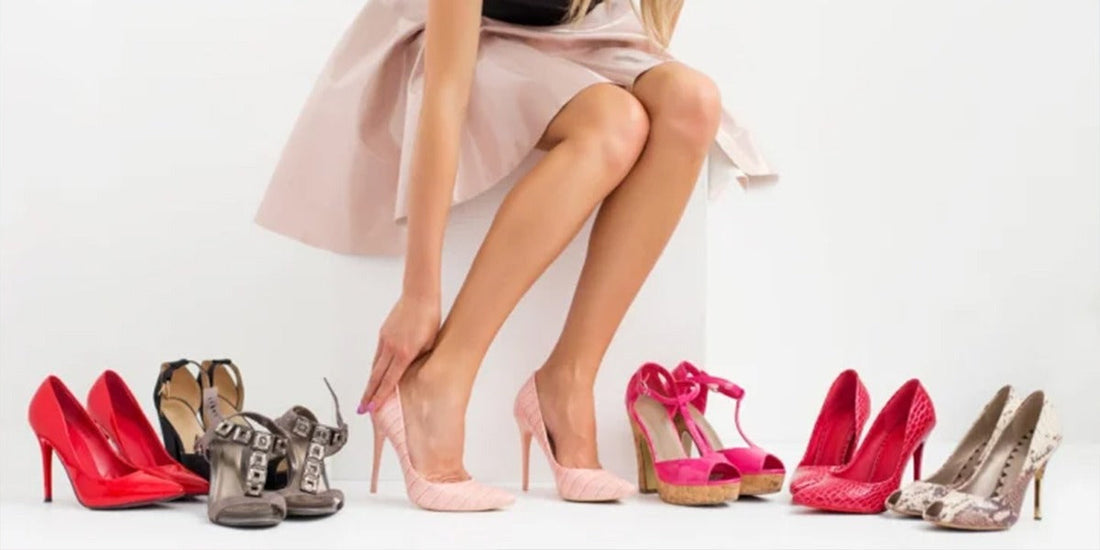
The Influence of Footwear on the Development of Ingrown Toenails
Share
The choice of footwear significantly affects how toenails grow and interact with the surrounding skin, underscoring the importance of selecting shoes wisely to prevent ingrown toenails. Opting for shoes that provide sufficient toe room and have low heels can relieve pressure on the nails, thereby lowering the chances of the toenail piercing into the skin. In contrast, shoes that are too tight or poorly fitted can compress the toes, heightening the risk of ingrown toenails and discomfort. Understanding these factors and choosing footwear that promotes foot comfort and overall health is key to avoiding the onset or recurrence of this painful condition.
Our skilled podiatrists offer expert care to resolve ankle and foot issues, including ingrown toenails, which, if left untreated, can escalate into painful infections. Their specialized knowledge ensures precise diagnosis and tailored treatments to alleviate discomfort and promote long-term foot health, emphasizing proactive care to prevent complications.
The Impact of Footwear on Ingrown Toenails
Shoes that are too tight or do not provide adequate room for the toes can cause or worsen ingrown toenails. Here's how different types of footwear can contribute to this condition:
- Ill-Fitting Shoes: Shoes that are too small or too large can contribute to ingrown toenails. Small shoes can compress the toes, while large shoes can cause the feet to slide forward, repeatedly jamming the toes into the front of the shoe. Both scenarios create an environment conducive to toenail problems.

- Pointed-Toe Shoes: Fashionable pointed-toe shoes may look appealing but force the toes into an unnatural position. This constriction can cause the toenails to grow into the skin, especially if worn for extended periods. Over time, the repetitive pressure and abnormal positioning can lead to chronic ingrown toenails.

- High Heels: High heels narrow the toe box and shift the body's weight forward, increasing pressure on the toes. This added pressure can exacerbate the risk of developing ingrown toenails. Women who frequently wear high heels are particularly susceptible to this issue.

- Athletic Shoes: While athletic shoes are generally designed for comfort and support, improper fit, or wearing the wrong type of athletic shoe can still lead to ingrown toenails. Shoes that are too tight or do not provide adequate toe room can cause issues. Additionally, sports that involve a lot of stop-and-go movements, such as soccer or basketball, can increase the risk of toenail injuries and subsequent ingrown nails.
Choosing Proper Footwear
To prevent ingrown toenails and promote foot health, follow these guidelines for selecting footwear: Ensure a proper fit with enough room for toes to wiggle comfortably and about a half-inch space between the longest toe and shoe end. Opt for shoes with a wide toe box to allow natural toe spreading, avoiding narrow or pointed designs that squeeze toes.
Choose low-heeled or flat-soled shoes to minimize toe pressure, and prioritize supportive footwear with good arch support and cushioning to distribute weight evenly. Shoes with adjustable straps or laces can prevent feet from sliding forward, reducing the risk of toenail trauma.
Select breathable materials to promote air circulation and prevent fungal infections, especially in athletic shoes tailored to specific sports. Regularly replace worn-out shoes to maintain support and shape, which is crucial for preventing foot problems over time.
Additional Tips for Preventing Ingrown Toenails
In addition to choosing the right footwear, there are other steps you can take to prevent ingrown toenails:
- Proper Nail Trimming: Trim your toenails straight across and avoid rounding the corners. This prevents the nails from growing into the skin.

- Hygiene: To prevent infections that can exacerbate ingrown toenails, keep your feet clean and dry. Regularly wash and thoroughly dry your feet, paying attention to the spaces between toes where moisture can accumulate. This practice not only promotes overall foot hygiene but also reduces the likelihood of fungal or bacterial infections that may complicate the condition.
- Consult a Podiatrist: If you frequently experience ingrown toenails or have persistent foot problems, consult a podiatrist. They can provide professional advice and treatment to prevent and manage ingrown toenails.
Key Takeaway
Footwear plays a crucial role in the development and prevention of ingrown toenails. Tight-fitting, pointed-toe, high heels, and ill-fitting athletic shoes can all contribute to this painful condition. By choosing shoes that fit well, have a wide toe box, and provide adequate support, you can significantly reduce the risk of developing ingrown toenails.
Additionally, practicing good foot hygiene and regular nail care can help maintain healthy toenails and prevent recurring issues. Understanding the impact of footwear on toenail health empowers individuals to make informed choices that promote overall foot health and well-being.
